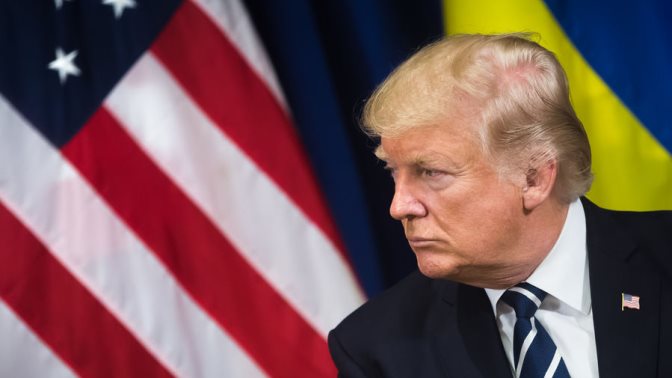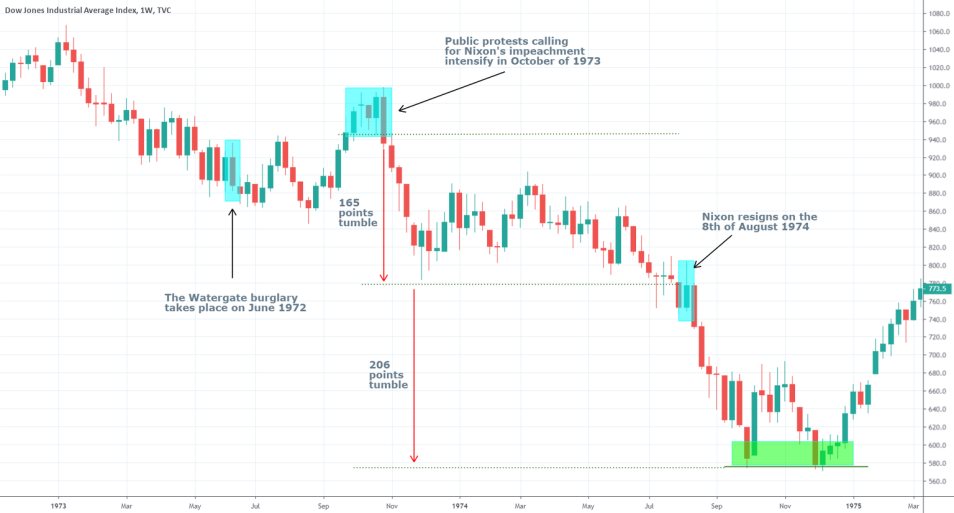
The 45th President of the United States has landed himself in hot waters recently, because of the brewing scandal connected to a phone call he has exchanged on the 25th of July with the Ukrainian President, Volodymir Zelensky.
As it was later revealed, Trump had requested from his Ukrainian counterpart to investigate Joe Bidden, who is considered by many to be the most likely Democratic nominee to run in the 2020 Presidential Elections.
The news of Donald Trump's controversial phone call with Mr Zelensky became viral almost immediately after it was made public by reportedly two separate whistleblowers, who remain anonymous and allegedly have first-hand experience with the phone call according to people familiar with the matter.
Some US Democrats have addressed the issue by calling for an impeachment inquiry to be held against Trump in a bid to remove him from office. Nancy Pelosi, House Speaker and a chairman of the inquiry commission, is leading the probe into the President’s actions.
According to a recent poll conducted by the Washington Post/Schar School, 58 per cent of American voters are in favour of the impeachment enquiry, and 49 per cent of the interviewees support the notion for moving right away to impeach the president.
Despite the public uproar, however, the White House came up with an official statement on Tuesday, saying that it will not cooperate with the inquiry. Pat Cipollone, White House counsel, wrote to Nancy Pelosi in an eight-page letter stating that:
“You have designed and implemented your inquiry in a manner that violates fundamental fairness and constitutionally mandated due process. […] The effort to impeach President Trump – without regard to any evidence of his actions in office – is a naked political strategy that began the day he was inaugurated, and perhaps even before.”
From that response, it becomes evident that the presidential administration is going to attempt to exploit the unlawfulness of the inquiry to their advantage, by alleging the Democrats of abusing the created situation to gain unfair leverage before the upcoming elections in 2020.
The resulting smear campaign has put House Democrats and Republicans at odds with each other, and the entire situation is becoming eerily reminiscent of the 1970s and the infamous Watergate scandal.
In 1972 five men affiliated with the Nixon administration broke into the Democratic National Committee (DNC) headquarters at the Watergate office complex in Washington. The subsequent probing into the conspiracy allegations revealed that then-President Richard Nixon attempted to cover up the burglary and abused his powers in an attempt to veer off the investigation.
Nixon knew that the impeachment enquiry would most likely result in a legal ruling against him, which would lead to his removal from office. Instead, he eventually chose to resign from his post prior to the completion of the impeachment inquiry.
The parallels between the Watergate scandal and the 2019 Trump/Zelensky scandal bare many similarities with each other that extend beyond the respective impeachment inquiries.
Both the Nixon and the Trump administrations initially resisted the investigations into the two leaders' dealings; however, they were eventually made to release secret documents which incriminated them at least partially.
Even though Richard Nixon was not accused of being directly involved in the Watergate burglary, he was alleged of intervening with the subsequent probing and also of attempting to cover up crucial evidence. Likewise, Trump is being accused of perpetrating illicit espionage on members of the democratic party, albeit, not committing the act himself.
But the parallels do not stop here. Nixon’s initial reaction to the allegations was to deny any sort of involvement and to maintain his innocence, and his official stance on the issue has remained virtually unchanged until the mounting evidence against him was becoming overwhelming.
Trump, on the other hand, responded to the impeachment inquiry in a typical fashion for him by taking the issue to social media.
“There are no felonies, there are no Impeachable offenses. The Constitution’s very clear that you need bribery, treason, or other high crimes and misdemeanors. You can’t be impeached for the conduct that’s been alleged in this case.” @AlanDersh Dershowitz. @seanhannity A Scam!
— Donald J. Trump (@realDonaldTrump) October 8, 2019
He challenged the lawfulness aspect of the inquiry, going as far as to argue its unconstitutional basis. And while that might be so, he did not explicitly deny requesting from the Ukrainian president to investigate Joe Bidden.
Instead, he tried to flip the whole situation in his favour by attacking the Democrats, claiming that the entire probing process is nothing more than a scam, to curb his popularity before next year’s presidential elections.
Nancy Pelosi knew of all of the many Shifty Adam Schiff lies and massive frauds perpetrated upon Congress and the American people, in the form of a fraudulent speech knowingly delivered as a ruthless con, and the illegal meetings with a highly partisan “Whistleblower” & lawyer...
— Donald J. Trump (@realDonaldTrump) October 7, 2019
He is not necessarily shifting the blame on others; however, it seems that Donald Trump is trying to change the focus of the entire scandal by removing the controversy factor from himself, judging by his rhetoric on social media.
At the current time, it is yet impossible to say with certainty whether the inquiry will result in impeachment for Trump from the Oval Office or whether the Democrats will fail in their attempts to discredit Trump. However, it is prudent to examine the potential long-term ramifications for the stock market on the assumption that he is made to resign from his position.
As a result of the Watergate scandal and the ensuing resignation of Nixon, the Dow Jones Industrial Average tumbled with 371 basis points. Nowadays, such price swings occur in the span of a single month; however, back then, this collapse amounted to the substantial 39 per cent of the entire index.

The collapse was owing mostly to the discredited Presidential office, which has been harshly damaged by the actions of Richard Nixon, and the resulting overall uncertainty severely impaired the stock market.
Assuming that Donald Trump is eventually forced to take the same actions as Richard Nixon before him, what can happen to the Dow if the anticipated market reaction parallelled proportionately the one in 1974?
The index is currently trading around 26400 basis points, and a 39 per cent collapse would manifest a bearish downswing of 10300 points close to 16100.
Coincidently that final price level is very close to November 8th 2016’s opening price of 18251, which was the day in which Donald Trump was elected as the 45th President of the United States.




















